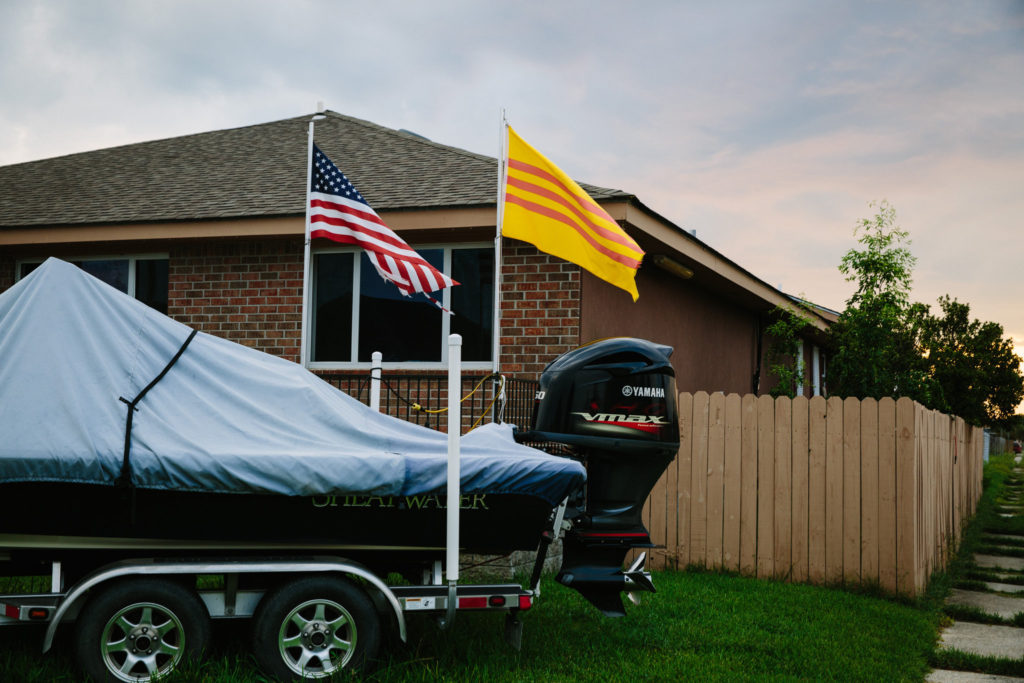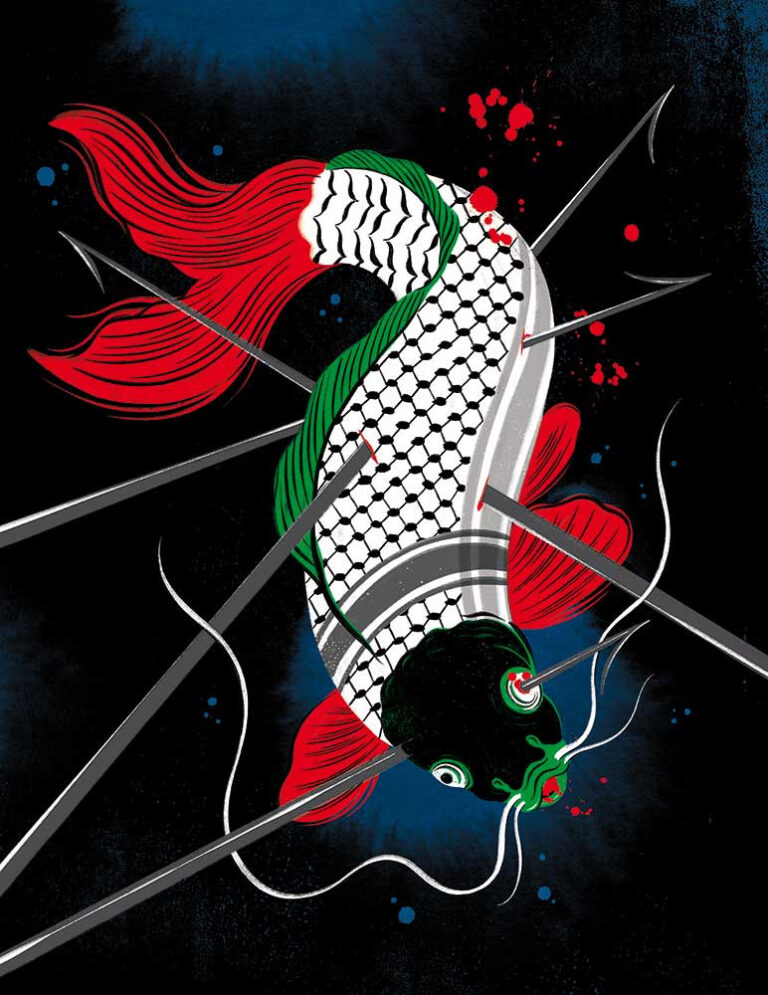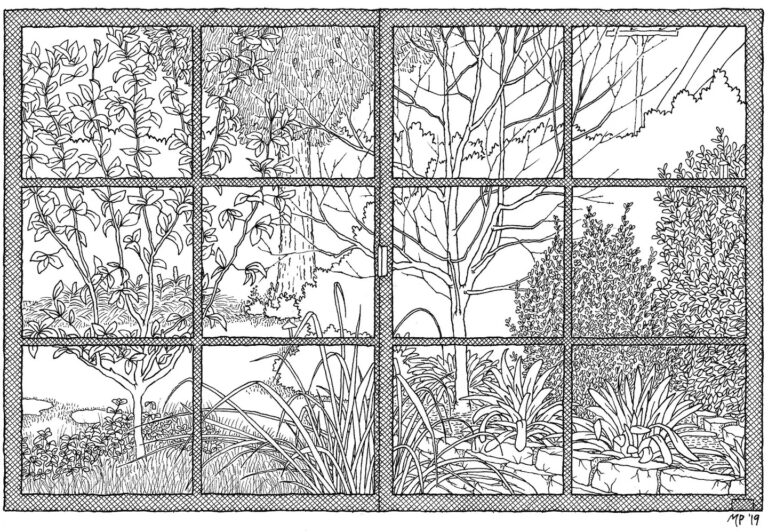Viet published an op-ed in the New York Times about storytelling in the age of Trump. Here is the unedited, 1400-word version. The link to the 900-word published version comes at the end.

My son is three years old. Every morning and evening I read to him. I love the joy he takes in learning new words, immersing himself in stories, seeing himself as the characters, and acquiring a moral and ethical sense. He lives in a world of good and bad, of threat and rescue, of choices between doing or not doing harm.
When I was a child, not much older than him, I had no library to call my own except the public library. In Harrisburg, Pennsylvania, of the mid-seventies, I was a refugee and the child of refugees who had fled from Vietnam. My parents neither had the time nor the ability to read to me in English.
With my parents working constantly to survive in a strange land, I took refuge in books. They became my constant companion, and the public library my safe space. Through stories of America, I became an American. I imagined myself amid the wonders of Manhattan, the bucolic splendor of Midwestern farms, the stirring and dreadful times of the Revolution and the Civil War. This land was my land, too, even if in all of these stories there was no one who looked like me or had a name like mine.
As I remembered this, what became clear to me during the presidential election was that the contest for our American identity is not only a political affair. It is also a matter of storytelling. Storytelling has always been crucial to this and any other country. Those who seek to lead our country must persuade the people through their ability to tell a story about who we are, where we have been, and where we are going. The struggle over the direction of our country is also a fight over whose words will win and whose images will ignite the collective imagination.
Donald Trump won that struggle, if just barely, having lost the popular vote and winning the electoral college with fewer than 100,000 votes in three states. His voters responded to his call to “Make America Great Again,” referring to a past when jobs were more plentiful, incomes more stable, and politicians more truthful. That kind of nostalgia is powerful, but for those who disagree with him, it’s hard to ignore his story’s subtext. America of the Golden Age, if it ever existed, only did so because women were kept out of the workplace, people of color were segregated and exploited, and immigration was racially restrictive. Trump’s story was simpler and more visceral, and audiences have always responded hungrily to his kind of morality tale.
Trump’s compelling vision of us versus them and good versus evil unified enough of the electorate to win, but terrifies many who did not vote for him. Among this population is much of the literary world, or so my conversations with literary people suggest. At the National Book Award and Dayton Literary Peace Prize ceremonies that I attended recently, most of the speech givers proclaimed their opposition to the values that Trump espoused, which contradict literature itself. Great literature cannot exist if it is based on hate, fear, division, exclusion, scapegoating, or the worship of injustice. Bad literature and demagogic power, on the other hand, exploit these very things, and they do so through telling the kind of demonizing story that most literary writers reject.
The literary world knew that Trump had many supporters, but we believed too optimistically that what we valued in literature—empathy, justice, inclusion—would prevail. But there were warning signals. Occasionally, before the prize, I would get a letter from someone who did not like my novel, accusing me of being ungrateful to America, of criticizing America too much. When I checked my book sales, the regions where the book was most popular were the northeast, the west coast, and the big cities. A vast swath of rural America in the deep south, the heartland, and the upper north were not buying the book. And the day before the presidential election, an obscure novelist attacked me on Twitter. I was “NOT an #American #author (born in #Vietnam).” As for my Pulitzer, it was “An American #prize that shuns the real #America. #We long for the Great #American #Novel. When?”
I can only assume many more of my fellow Americans feel this way about me or people like me, even though I have spent all but four years of my life in America. People like me speak without an accent, live middle-class lives, passed our citizenship exams. When do we become Americans in the eyes of that part of America that voted for Donald Trump? And what of those people who speak with an accent, do not belong to the middle class, and are not citizens? Is there hope for them to be a part of America? Do they feel isolated, frightened, and alone?
The election reminds me of the necessity of my vocation, of the crucial role that literature plays in shaping the imagination and in offering refuge. Literature is a sanctuary. No book has ever refused a reader. Writers cannot write if they are incapable of imagining what it is that an other feels, thinks, and sees. Through reading and writing, through identifying with characters and people who are nothing like us, through destroying the walls between ourselves and others that it is so easy to hide behind, we who love words learn to love others. Great literature can and must depict abuse, among other things, but it cannot itself be abusive.
To literary people, Trump’s story of a once-great America sounds abusive. It threatens deportation and exclusion and exults in domination and insult. The cast of Hamilton sought to remind Mike Pence of this when he attended the show, addressing him directly and imploring him to defend American diversity. When an offended Trump tweeted that the theater “must always be a safe and special place,” he missed the point that America should always be a safe and special place. This is why nobody in the literary world is rushing to embrace his version of storytelling. From a literary perspective, the only good thing about Trump’s victory is that it has brought out a spirit of resistance and an affirmation of literature, an ethos summed up by the novelist Colson Whitehead in his acceptance speech at the National Book Awards: “Be kind to everyone. Make art. Fight the power.”
After I drank two bottles of Scotch with my partner and my graduate students during the night of the election and the next day, I also renewed my commitment to fight the power. As a writer, that was always my mission, and I was thinking of it when I named my son Ellison, after the novelist Ralph Waldo Ellison, himself named after the philosopher Ralph Waldo Emerson. Making my son a part of this lineage, I wanted him to understand the basic paradox at the heart of literature and philosophy: even as each of us is solitary as a reader or a writer, we are reminded of our shared humanity and inhumanity. The lesson of the great books comes from how they assert, again and again, that we are not alone.
My son need not become a writer, but he will become a storyteller. We are all storytellers of our own existence, of our American identities. I want my son to rise to the challenge of fighting to determine whose stories will define our America. These stories include even Trump and his followers, whose concerns are genuine to them. But even as we writers should feel compassion for them, and tell stories about them, we cannot surrender our values to theirs. Our task, now more than ever, is to help transform the political world so that it expresses the values of the literary world. Rather than building walls, we should be opening hearts. Rather than making America great again, we should help America love again.
Edited version also published in The New York Times.


